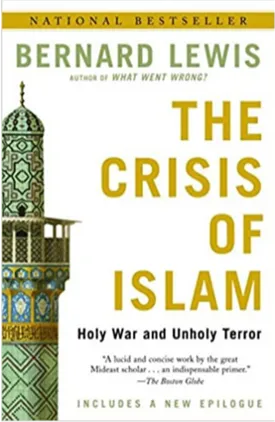Bernard Lewis
Bernard Lewis is an esteemed British-American historian and intellectual who is best known for his work on the Middle East, but who has famously also written on the broader Islamic world. His works focus on the interface between cultures, the interplay between ancient and modern civilizations, and the challenges that diplomacy and international affairs bring.
A professor emeritus at Princeton University, Lewis has long been a towering figure in both academia and public life, having advised US presidents and British prime ministers, as well as giving speeches and interviews around the world. This requires a short interlude in order to visit some of his background and his person.
Bernard Lewis was born in London in 1916, serving in the military during World War Two. He developed a deep passion for the history of the Middle East from an early age, and his studies later took him to the School of Oriental and African Studies at the University of London. Lewis achieved an extraordinary degree of success after publishing his two-volume magnum opus, The Emergence of Modern Turkey. At first, Lewis' research was focused largely on the Ottoman Empire, but he broadened his scope to encompass the wider Islamic world.
Lewis found himself gaining more international recognition and respect in the wake of publishing the influential The Arabs in History in 1950. As the years passed, Lewis continued his research and published various other books. He lectured at various universities, and even held the position of Cleveland E. Dodge Professor of Near Eastern Studies at Princeton University. All of these achievements made Bernard Lewis one of the leading authorities on the Middle East, and especially on the relationship between the Islamic world and Western culture.
One of Lewis’ most important books is his 1987 work, The Muslim Discovery of Europe. In this book, he traces the history of Islamic civilization and explores how the West and the Islamic world have interacted throughout different phases of history. While acknowledging centuries of tension between the two civilizations, Lewis argues that the underlying exchanges of ideas and mutual influences were much more beneficial than hostile. For example, Lewis looks at the impact of Islamic culture on Europe, such as the spread of knowledge in science, mathematics, and medicine, as well as how foreign soldiers and merchants from the Middle East affected European culture.
Another important work of Lewis' is The Middle East: Five Thousand Years of History, published in 1995. Here, Lewis looks at the 5-million-year history of the Middle East. With detail and breadth, Lewis chronicles the region and its various peoples, emphasizing the deep cultural, religious, and political divides that have always existed in the region. He also examines the vast economic, strategic, and cultural differences that have shaped the identity of the Middle East today.
These are just two of the most prominent works of Bernard Lewis, although he has in fact penned numerous other books which have had an undeniable influence on the study of the Middle East. All of these works are readily available and offer a wealth of insight and knowledge into the history, religion and culture of the Middle East. As such, they are a great place to start if one wishes to learn more about the region and the issues that it currently faces. Ultimately, Lewis’ books and commentary provide a great starting point for understanding both the past and the present of the Middle East.

